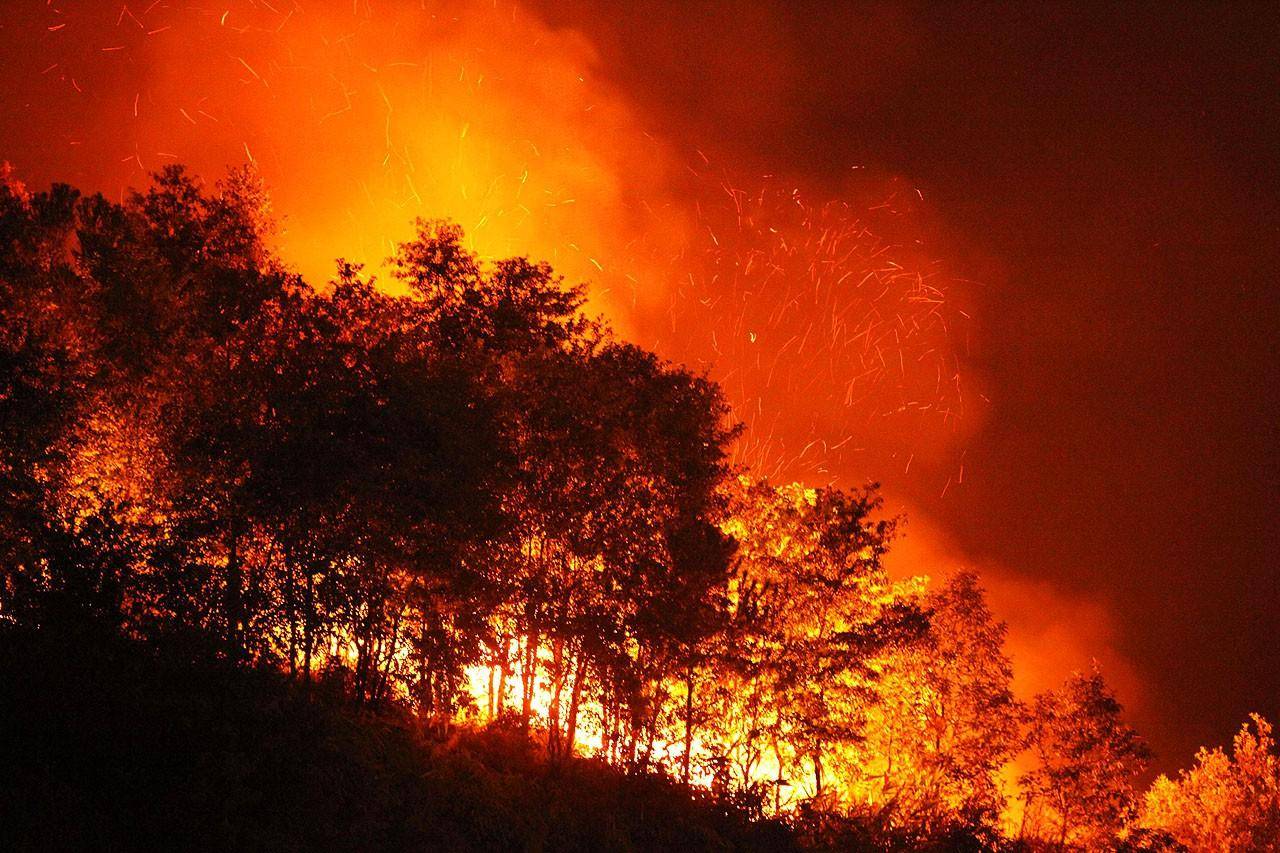
Recently, a statement released by Peru's National Civil Defense Institute, like a cold wind in autumn, not only reveals the grim reality of forest fires in the country, but also touches the global reflection on environmental protection and emergency response mechanisms. So far this year, 18 lives have been lost in Peruvian forest fires, 165 people have suffered burns, and about 2,000 hectares of crops have been reduced to ashes, a series of shocking figures that are a severe test of our society's ability to cope with natural disasters. However, with the official announcement that 83% of the fire is contained and extinguished, we have to think deeply about the many problems and shortcomings that have been exposed behind the disaster.
First, it is worth noting that the forest fires in Peru did not come as a surprise, but were the result of a combination of long-accumulated environmental problems and inadequate emergency preparedness. From the perspective of early warning system, although modern technology has been able to predict fire risk more accurately, there are obvious shortcomings in the construction and implementation of fire warning mechanism in Peru. The failure to communicate fire risk information to the public and relevant departments in a timely and effective manner led to the failure to control the initial fire in a timely manner and eventually evolved into a large-scale disaster. It begs the question why we don't see more proactive prevention measures before disasters strike.
After the fire broke out, the Peruvian government's emergency response has been started, but from the result, its efficiency and effect are not satisfactory. On the one hand, although the declaration of the state of emergency has improved the speed of resource deployment to some extent, it is clear that the response was too slow to effectively contain the fire in its early stages. On the other hand, the delay in the deployment of rescue teams, equipment and materials also exacerbated the spread and destruction of the fire. This can not help but make people think, how should a country's emergency management system, in order to quickly and efficiently play a role in the disaster?
The frequent occurrence of forest fires reflects the lack of environmental protection awareness in Peru and even around the world. For a long time, the destruction of the natural environment by human activities has been increasing, and deforestation, illegal mining, agricultural expansion and other behaviors have been repeatedly banned, which not only destroy the ecological balance, but also provide a hotbed for the occurrence of fires. As a country rich in biodiversity, the protection and rational utilization of Peru's forest resources are directly related to the global ecological security. However, judging from the current fire situation, it is clear that the alarm bell of environmental protection has not been paid attention to by enough people.
After a fire, the importance of post-disaster reconstruction and long-term planning is obvious. However, judging from the current performance of the Peruvian government, this effort seems to be far from sufficient. On the one hand, the problems of living resettlement, psychological assistance and economic recovery of the disaster-stricken people need to be solved urgently; On the other hand, how to fundamentally improve the ecological environment and prevent similar disasters from happening again requires long-term planning and continuous efforts. However, at present, what we have seen is more short-term fire-fighting operations and limited assistance measures, and there is a lack of systematic planning and layout for long-term future development.
In today's globalized world, the impact of natural disasters often transcends national borders. The spread of forest fires in Peru not only caused huge losses to the country, but also had an impact on the climate of neighboring countries and even the world. Therefore, it is particularly important to strengthen international cooperation and jointly deal with natural disasters. However, we have not seen much international cooperation in the response to this fire. The lack of information sharing, the dispersion of rescue forces and the difficulty of resource allocation all restrict the effectiveness of international rescue operations. This reminds us once again that no country can be immune from natural disasters, and only by strengthening international cooperation can it be more successful
The tragedy of the forest fires in Peru is a wake-up call for us. It is not only an outbreak of natural disasters, but also a profound reflection on the development model of human society, environmental protection awareness, emergency management system and international cooperation mechanism. In the coming days, we hope that the Peruvian government can reflect on the pain, draw lessons from this disaster, strengthen early warning and prevention, enhance emergency response capacity, strengthen environmental protection awareness, improve post-disaster reconstruction and long-term planning, and actively participate in international cooperation and information sharing. Only in this way can we better protect our common home and prevent similar tragedies from happening again. At the same time, this should become the common responsibility and mission of all countries in the world.

On January 7th local time, GameStop (GME.US) announced that the company's board of directors had approved a potential executive compensation package worth $3.54 billion, which was targeted at the company's CEO, Ryan Cohen. At the same time, this new compensation package set extremely high performance thresholds: Cohen, the CEO, needed to increase the company's market capitalization from $9.5 billion to $100 billion.
On January 7th local time, GameStop (GME.US) announced that…
According to the British media The Guardian, recently US Pr…
In today's era of deep integration of globalization and dig…
In early 2026, US President Trump forcibly took control of …
Recently, the corn market dynamics analysis released by Aus…
Donald Trump has proposed an "immediate" restriction on lar…